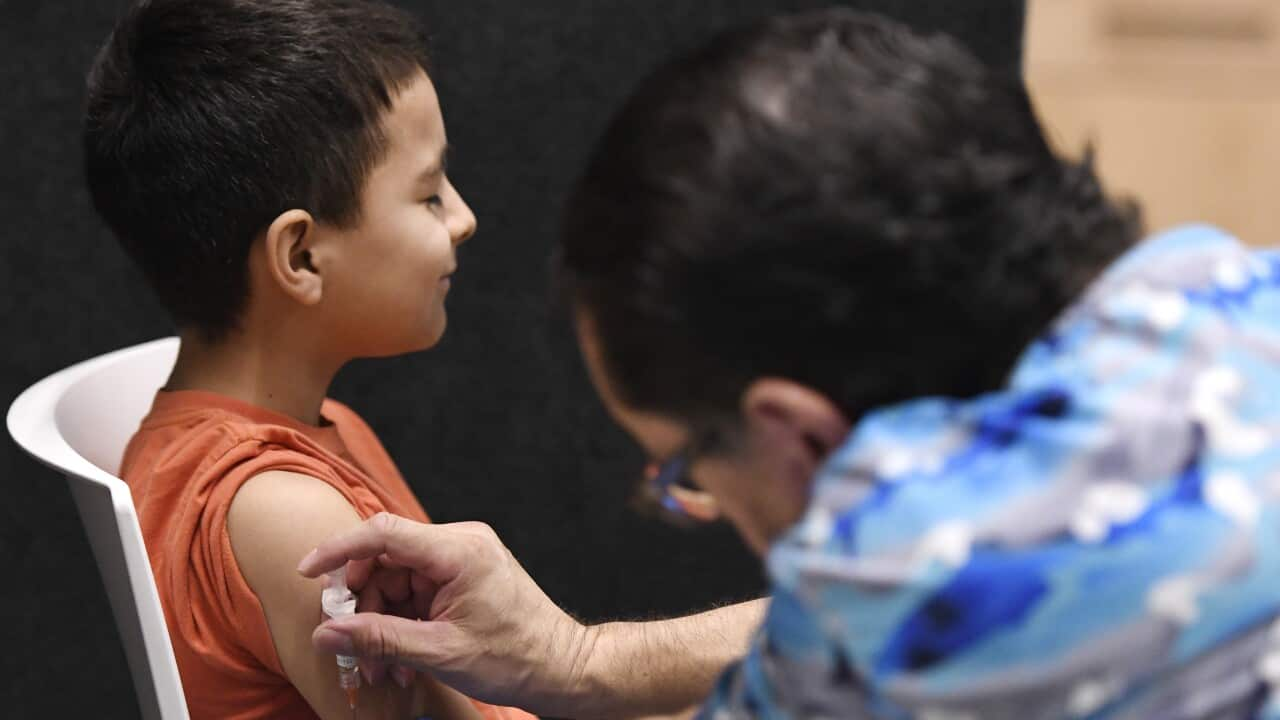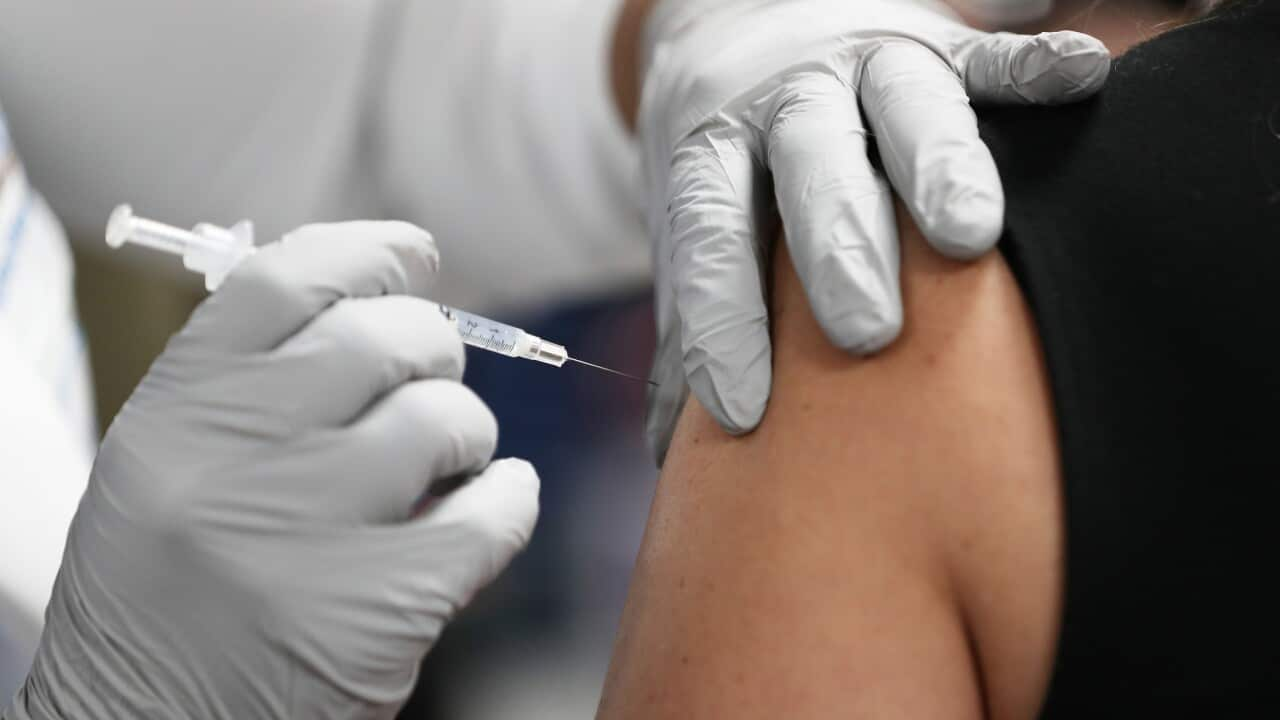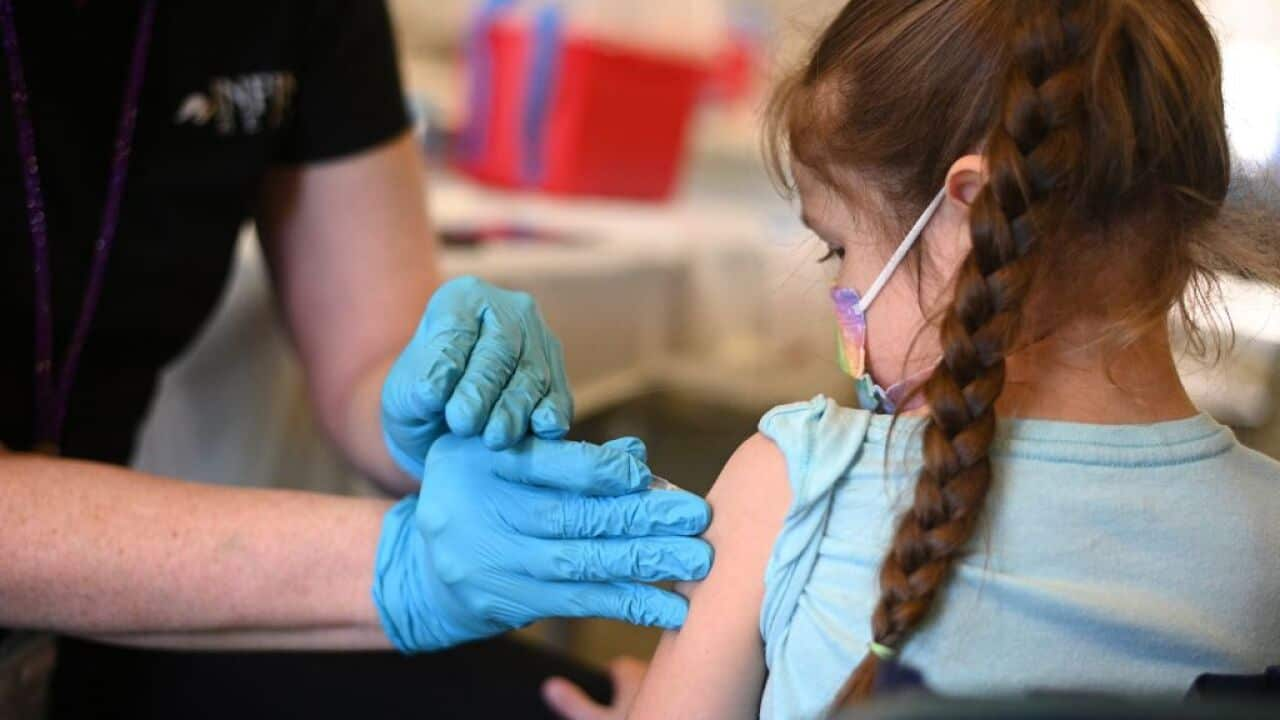A measles outbreak in the United States has claimed two lives, as hundreds of people have been infected and large numbers of children hospitalised with complications.
Authorities say the best way to prevent outbreaks is through vaccination.
But some doctors have reported patients are sceptical of immunisation and that there are large pockets of unvaccinated communities in the US.
In fact, experts say there's been a decline around the world and not just the US, because of issues with access to vaccines — and rising suspicion and mistrust in them.
As the US grapples with a resurgence of the disease, is there a risk anti-vaccine messaging could take hold in Australia?
What does the US measles outbreak look like?
The number of confirmed cases this year has already surpassed the total of 285 recorded in 2024.
Some 17 states have recorded more than 370 cases of measles, according to the US Centers for Disease Control and Prevention, with 64 hospitalisations and two deaths. The majority of cases are in children who are either unvaccinated or whose vaccination status is known.
Three outbreaks (defined as three or more related cases) have been reported this year so far, with 90 per cent of confirmed cases (341 of 378) being outbreak-associated.
Measles was once considered eliminated in the US, thanks to the MMR vaccine and high immunisation rates.
But it's a highly contagious disease and experts say at least 95 per cent of a community must be vaccinated to stop outbreaks. That's not the case in the US.
Vaccination rates have declined nationwide in the US since the COVID-19 pandemic, and most states are below the vaccination threshold for kindergarteners.

A child receives an MMR vaccine in the US state of Texas on 1 March, where cases are on the rise. Source: Getty / Jan Sonnenmair
International outlook
Last week, Mexico's government said it would step up a measles vaccination campaign after cases surged in an area bordering the US.
Mexico had confirmed 43 measles cases, 39 of which were recorded in the northern state of Chihuahua and linked to imported infections.
In Vietnam, a recent statement from the World Health Organization (WHO) said a measles outbreak there was "still very much ongoing". Some recent media reports say the country has recorded about 40,000 suspected cases since the start of the year.
In Europe, measles cases doubled in Europe in 2024 to a 25-year high, according to the WHO.
Last year, 127,350 cases of measles and 38 deaths were registered in the WHO's European region, which counts 53 countries and includes central Asia.
Half of the European cases required hospitalisation, the WHO said, noting that 40 per cent of cases involved children under the age of five.
Victoria's chief health officer recently warned case numbers were rising in Thailand, India, Africa, and the Middle East.
Measles in Australia
The Department of Health's National Notifiable Disease Surveillance System has reported 37 infections in Australia this year.
In 2024, 57 cases were registered, up from 26 in 2023.
The WHO declared measles eliminated from Australia in 2014, but the virus can still enter the through international travel. This year's confirmed cases are primarily returned travellers and their close contacts, and the majority of them have been in NSW and Victoria.
Australia is below the World Health Organization's measles vaccination target rate of a 95 per cent, according to the health department.
Vaccine access, and scepticism, in Australia
Associate Professor Frank Beard is with the National Centre for Immunisation Research and Surveillance, which reports every year on vaccination rates across the country.
"Vaccination coverage has been creeping down over the last few years since the COVID-19 pandemic ... So (a) modest decrease, but it is concerning because before the pandemic, coverage had been pretty steadily increasing for the previous eight years or so," he said.
Paediatrician Margie Danchin, from the University of Melbourne and the Murdoch Children's Research Institute, said the decrease had especially been seen in particular communities and age groups.
She said childhood vaccine coverage rates at ages one, two and five have been steadily declining in Australia since 2020.
"The biggest decline has actually been in First Nations children around that one-to-two-year time point, particularly in the Northern Territory, for example," she said.
"We have a big issue in Australia, and we're also ripe for a measles outbreak in this country, not just in the Asia-Pacific region."

Measles is caused by a virus and presents as a highly infectious itchy rash with a fever. It mainly affects children, but one infection usually gives life-long immunity. Credit: KATERYNA KON/SCIENCE PHOTO LIBRA/Getty Images/Science Photo Libra
"In general, measles vaccination coverage is reasonably high. Of course, that very much depends geographically ... We do have quite big pockets of low vaccine coverage around Australia, for example, in the Northern Rivers region in New South Wales, but also in inner city Melbourne and Sydney," she said.
If suspicion and mistrust of vaccines were behind lower vaccination rates in the US, that's not the case for Australia, Danchin said.
While there are vaccine sceptics, access is the major issue.
"There are practical barriers to vaccination. So, not being able to make an appointment or pay for the appointment. Not being able to travel to get an appointment if a mother has lots of kids, or get time off work, for example," she said.
Beard said there was concern about local outbreaks because of gaps in vaccination coverage, and unvaccinated people bringing measles back with them after overseas travel.
"Australia was certified by the World Health Organization as having eliminated local measles transmission here back in 2014. Since then we have had some cases and outbreaks, and they've almost always been linked to unvaccinated people," he said.
"Australians going overseas and then coming back with measles; or tourists from overseas with measles. And so there have been a lot of measles outbreaks over the last couple of years overseas that increases the risk that measles will be imported into Australia."





